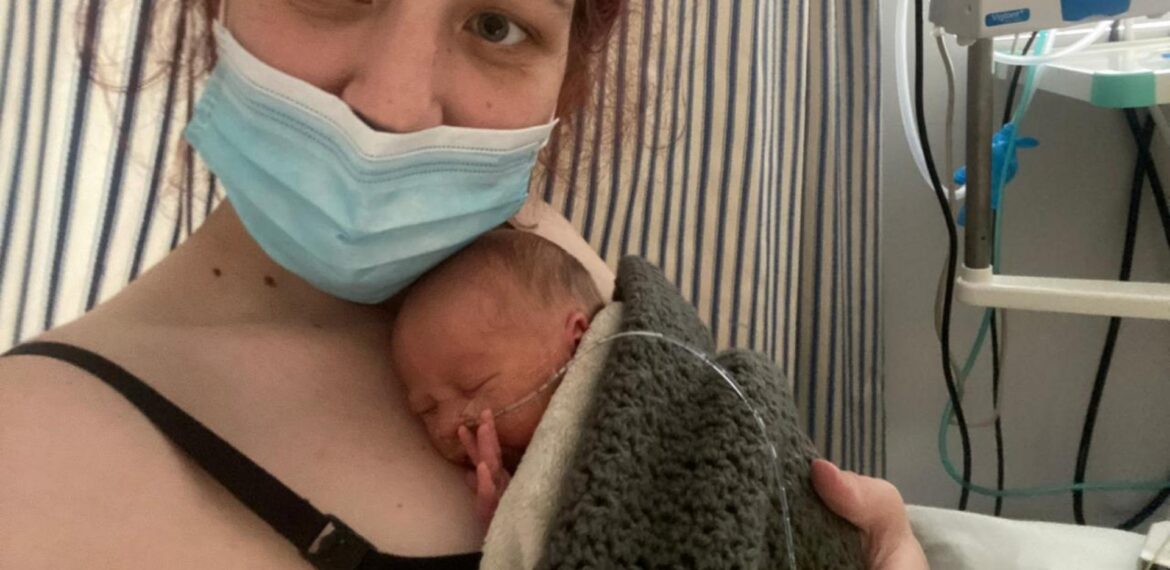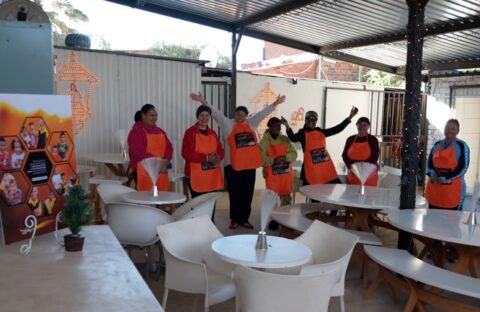
The let down: The breastfeeding journey nobody tells you about
The let down: The breastfeeding journey nobody tells you about
The let down: The breastfeeding journey nobody tells you about
There’s a lot of pressure on new moms to get breastfeeding “right” — but the truth is, it doesn’t always come naturally. For many women, it’s a confusing, emotional, and sometimes painful journey filled with uncertainty and self-doubt. And while everyone seems to have an opinion, what new moms really need is support — not judgment.
As we mark World Breastfeeding Week, HOT 1027 News is shining a light on the real stories behind the feeds. We’ve gathered expert advice and heartfelt insights to create a digital resource that offers guidance, reassurance, and — most of all — a reminder that you are not alone. This year’s theme, “Prioritise Breastfeeding: Create Sustainable Support Systems,” couldn’t be more important — because when moms are supported, families thrive.
The pressure to breastfeed – and what it’s really doing to moms
From hospital rooms to social media, the message has long been clear: breast is best. But for mothers who struggle — or simply can’t breastfeed — that message can feel like a verdict.
Child development expert Courtney explains how damaging that pressure can be: “The most common emotions that come up are guilt and shame… and that’s really unfortunate. Feeding is just one aspect of caregiving.”
Mom Sheila Cannell knows this intimately:
“My body was producing milk for a baby I wasn’t allowed to hold, and that was so difficult… I felt like if I couldn’t breastfeed, I was undeserving of being the mom.”
That emotional toll is echoed by Marisa Calvert, a mother of two:
“No one warned me it would be so hard, so sore, so… lonely.”
Many women internalise these struggles, questioning their worth as mothers. “Why can’t I supply for my child?” Sheila asked herself. “Does my body hate my baby? Does my body hate me?”
These stories highlight the emotional impact of a system that praises breastfeeding — but often fails to support it in practical, compassionate ways.
Better preparation leads to better outcomes
Midwife and lactation consultant Claire Bracha believes much of the distress could be avoided with better antenatal preparation. “We prepare for birth,” she says, “but we don’t prepare for feeding. And so many moms walk into hospitals unsure, unarmed, and unsupported.”
Claire encourages all expecting mothers — especially those with past trauma, breast surgery, or medical concerns — to seek out one-on-one consultations with lactation experts before the baby arrives. “It helps moms create realistic breastfeeding goals,” she explains, “and prepares them for when things don’t go according to plan.”
Marisa echoes the importance of learning from experience:
“The second time around was still hard, still sore… but I was better prepared. One thing I learned? Be super, super patient with yourself.”
And Sheila reminds moms to own their emotions:
“Don’t gaslight yourself into thinking this is your fault. It’s not. Sit in your feelings. They’re valid.”
Social media comparisons, well-meaning advice from family members, and poor communication from healthcare professionals can compound the pressure — making realistic, personalized preparation even more essential.
Returning to work? You need a plan — and support
Working mothers face another layer of complexity: how to continue breastfeeding once maternity leave ends. Dr Rahmat, a healthcare expert and mother of four, says this is where many journeys are derailed. “Our workplaces aren’t set up for it,” she says. “There’s no privacy, no time allowances — and it’s exhausting.”
She cautions moms not to start expressing milk too early. “We’re not designed to feed plastic,” she says. “We’re designed to feed our babies. Pumping is learned — it’s not instant.”
Yet many moms, driven by fear, start pumping immediately after birth, often decreasing their own supply. The ideal, she says, is to establish breastfeeding first, and only begin expressing about two weeks before returning to work — unless specific medical conditions apply.
The challenges are even more severe for moms in public hospitals and lower-income households. Qudsiyah Kassim, a dietician in the NICU at Rahima Moosa Hospital, explains:
“Breast milk is literally lifesaving for premature babies. But many moms can’t express — not because they don’t want to, but because of financial and logistical barriers.”
Dr Azra Ghoor, a paediatrician at the same hospital, adds:
“We have moms taking two or three taxis just to get here — every day. Many have no maternity leave, some are still in school, and most have other children at home.”
The emotional toll of this daily pressure is immense. Sheila, whose daughter was in the NICU for six weeks, describes the toll it took:
“I was waking every three hours to express for a baby I couldn’t hold. And I felt judged — by colleagues, by other moms. I’ve carried that pain for years.”
There’s no one right way — but support should be universal
Ultimately, every mother’s feeding journey is unique. And while breastfeeding may be ideal from a medical perspective, the emotional, logistical, and financial realities must be considered too.
Claire Bracha puts it plainly:
“Breastfeeding is important. But it’s part of being a mom — not the whole story.”
Support can come in many forms — donor milk for NICU babies, patient partners who help with skin-to-skin, employers who create lactation spaces, or even just friends who listen without judgment.
And for the moms still struggling, Marisa offers this simple encouragement:
“It gets better. Our bodies are different. Just be very, very patient with yourself.”
This World Breastfeeding Week, let’s move beyond slogans and celebrate real support. Whether a baby is breastfed, bottle-fed, or both — what matters most is love. And what moms need most is understanding, resources, and permission to do what’s right for them.








